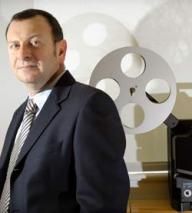Event
Wolf Symposium 2018 | Saturday, 14 April 2018
Documentaries Now: Challenges, Opportunities, Directions
Of all the film and media practices today, there is none more dynamic and inventive than the documentary. At least since the 1980s, the practice has proliferated and changed in ways that engage audiences in theaters, through the Internet, and on home-screens. From re-investigations of lost histories and cultures through explorations of different subjectivities and new technologies, contemporary documentaries are at the center and in the vanguard of media representation today. This one-day symposium will gather some of the most important scholars engaged with the place of documentaries in contemporary culture and the directions that they are mapping towards the future.
_______________________________________________________
10-10:30am | Breakfast
10:30am-12pm | Panel 1 | INSTITUTIONS | Moderator: David Novack

Catherine Russell | Concordia University
Archiveology and Historical Imagination
Archiveology is defined in my forthcoming book as the use of the image archive as a language. In this paper I will further define this term and use it in relation to a group of short films recently produced by the National Film Board of Canada as a series called Souvenirs by Canadian indigenous filmmakers. Archiveology is a term derived from Walter Benjamin's conceptions of memory, document, excavation, and historiography which I have developed in the context of various image recycling practices. The paper will provide a brief overview of shifting definitions of the archive and tendencies in found footage, compilation, and collage filmmaking that have taken place since 1990. The essayistic value of archiveology lies in the way that the filmmakers use images them to speak back to the archive, which has become a particular important critical practice in recent Canadian documentary filmmaking.
Patricia White | Swarthmore College
Woman with a Movie Camera: Gender and Documentary Sustainability
This presentation offers a reading of Kirsten Johnson’s award-winning memoir Cameraperson as a way of reflecting on the sustainability of contemporary US independent documentary. At a moment when new documentary platforms, publications, and diversity and inclusion initiatives are gathering hype, filmmakers are having trouble making a living: 67% of respondents to a recent survey of documentary professionals cited public funding and sustainable careers as the greatest challenges facing the field. Composed of outtakes and other unused footage from Johnston’s twenty-five year career as a cinematographer shooting award-winning documentaries all over the world, Cameraperson responds to forms of precarity onscreen and off, raising questions of gendered labor, transnational connectivities and media temporalities.

Chris Cagle | Temple University
"Character" in Contemporary Festival Documentaries
The wedding of a tight narrative structure to a protagonist has emerged as a dominant form in contemporary documentary and has become known as the character-driven documentary. In many funding, distribution, and broadcast contexts, the character-driven approach is nearly obligatory, and for filmmakers finding a "character" and her story poses a central challenge in the filmmaking process. Documentary theorists, on the other hand, tend to prioritize performance and persona over character per se. There is a gap, then, between the conceptual preoccupation of many documentary filmmakers and the critical agenda of doc studies. This paper seeks to bridge this gap by examining documentary cinema geared toward the film festival circuit. It will analyze recent films that played on the festival circuit but lacked wide theatrical distribution: The Young Patriot (Du Haibin, 2015), Communion (Anna Zamecka, 2017), Those Who Remain (Eliane Raheb, 2015), and The Successor (Mattia Epifani, 2015). In the festival context, the character-driven structure facilitates a transnational address to global spectator. At the same time, many of these festival documentaries resist or modify key traits of the character-driven approach. The aestheticization of the character-driven documentary puts into relief the constructedness and partiality of character while affording some of the spectatorial pleasures of the character-driven approach and the benefits of character to the filmmaker.
12-1pm | Lunch
1-2:30pm | Panel 2 | ON AND OFF SCREEN | Moderator: Louis Massiah

Faye Ginsburg | NYU
Relational Aesthetics on and off screen: Rethinking the future of Ethnographic Documentary
Over the last two decades, ethnographic documentary has evolved in two somewhat contradictory directions. On the one hand, sensory ethnography has emphasized formal experimentation that has become increasingly part of new immersive technologies such as VR, and the possibilities of Go Pro and other cameras that enable shooting in extreme circumstances that enhance the impression of "being there" in its most physical and haptic sense, notably in the film Leviathan, but others as well. On the other hand, evolving work in Indigenous (We Don't Need a Map) and participatory media (Please Don't Beat Me Sir), experimental documentary projects (Bastards of Utopia), and disability ethno-fictions (Keep the Change), raise important questions about the off-screen relationships that they strive to reflect and the ethical/political relationships with the subjects of their works. Borrowing and expanding on the term "relational aesthetics" from the art critic Nicolas Bourriaud's 1998 book of the same name, I explore these two contemporary trends. If relational aesthetics in the creation of art is intended to provide a rich and embedded conduit for understanding social experience, I suggest that expanding this idea to contemporary ethnographic documentary offers a rich an alternative way to find a meaningful road forward for the field.
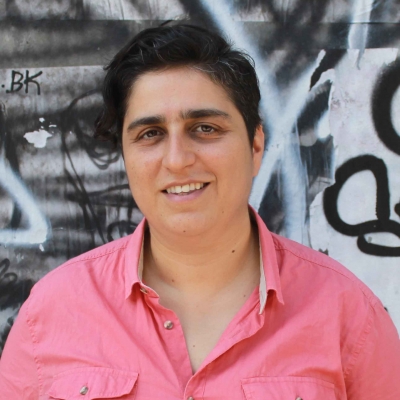
Wazhmah Osman | Temple University
Turning the Lens: Autoethnographic Films Versus the War on Terror Media Industrial Complex.
In this presentation I will analyze the work of queer and feminist diasporic filmmakers from the MENA and Central and South Asian countries. In particular I will put into dialogue the cross-genre first person documentaries My Life As A Poster (Talukdar 1995), Norman Schwarzkopf Made Me Gay (Ebrahimi 2012), Postcards from Tora Bora (Dolak and Osman 2007) with the semi-autobiographical independent films Appropriate Behavior (Akhavan 2014), Circumstance (Keshavarz 2011), and The Last Harem (Keshavarz 2018). These filmmakers as interlocutors between two or more cultures carry the burden of representing the Other to their Western counterparts and vice versa. Inherently aware of geo-political and national power disparities that have rendered them dispossessed and displaced as national, gendered, and/or sexual minorities, these filmmakers to varying degrees use their feminist and queer sensibilities to "talk back" to the hegemonic gaze of both local conservative groups and international forces. Also by asserting alternative representations of Muslim women who have feminist and/or queer agency, these filmmakers have to varying degrees disrupted the tropes of over-sexualization, exotification, and over-victimization tropes of women under Islam. The degree to which these filmmakers have challenged imperial and masculinist projects and therefore the binary and assimilationist discourses of national, sexual, and genre conventions has had a direct impact on both the scale of their circulation and their commercial and critical success or lack thereof.
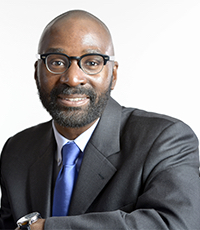
John L. Jackson | University of Pennsylvania
Thin Depiction: Images, Sounds and the Future of Scholarship
The talk will examine a few of the reasons why academics—and anthropologists in particular—are often hyper-skeptical of the film camera, following the lead of anthropologists such as Clifford Geertz in such skepticism. Also, using some of the recent projects produced by undergrads and graduate students at Penn as examples, this presentation will examine some of the reasons why there is controversy around how to curricularize scholarly interests in working/theorizing in images and sounds. Moreover, how might what others have called “documentality” help us to re-imagine our scholarly endeavors in fundamental, inclusive, and transformative ways?
2:30-3pm | Break
3-4:30pm | Panel 3 | STRATEGIES | Moderator: Rahul Mukherjee
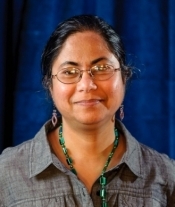
Neepa Majumdar | University of Pittsburgh
Documentary Biopolitics: Surveillance Aesthetics and the Idea of Europe in Nikolaus Geyrhalter's "Abendland" (2011)
Hearkening back to the observation of institutions associated with filmmakers such as Frederick Wiseman, Austrian filmmaker Nikolaus Geyrhalter's cinematic style similarly eschews voiceover and expository titles, thus also implicitly commenting on the state of contemporary documentary, much of which has gone back to using voiceover and other forms of audience orientation. Focusing on his film Abendland (2011), this paper argues that observation moves into surveillance as both subject matter and documentary style, to comment on the biopolitical regulation of "bare life" in the context of everyday institutions that construct the European Union as a single political and imagined unit. Geyrhalter's clinically austere cinematic style is dominated by long shots and static framings that mimic the surveillance camera; yet this sparse style is also about the ways in which the society of the spectacle has given way to surveillance society, where multiple screens connect citizen spaces and bureaucratic structures. Read through the lens of biopower, the film's surveillance aesthetic is arguably linked to the visual sorting and regulation of populations, ranging from immigration control, to medical management of infants and the elderly, to crowd control. In this context, surveillance means not only voyeurism, but also security, risk assessment, border controls, and generally a form of vision, or the use of visual technologies aimed towards the future, as risk assessment and preparedness. Surveillance society can be seen here as a product of the convergence of vision machines (large and small screens and monitors) and war machines in the integration of military, corporate, industrial, and medical interests. The film theorizes surveillance as a paradoxical visual mode that is all seeing, but is also about the limitations of vision which the film shows through its extreme long shots and immovable camera. The surveillance image, unlike the image as spectacle, is stripped bare and returns us to the basics of photographic media. In this film, then, the bare image penetrates the spaces of "bare lives" in the European Union.
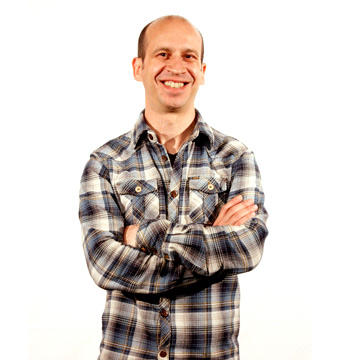
Jonathan Kahana | UC Santa Cruz
Documentary Is/Not a Joke: The Lighter Side of Sobriety
Is any modern mode of expression more unfunny than documentary? Does any form of mass-mediated speech or thought lend itself less to the structure of the joke? Attempting to reverse decades of scholarly and critical disdain for the topics, methods, and institutions of non-fiction film and video as undeserving of serious, sustained study, artists and theorists of the documentary mode argued, in a spate of influential essays and books published at the beginning of the 1990s, for a reconsideration of the form as a topic of university research, and a reframing of documentary film, video and television as not just a serious subject for university researchers but a powerful discourse of seriousness – what Bill Nichols called an institution of “sobriety” – unto itself. In the three decades since this theoretical turn, a period in which the highest agencies of American power have made irony about “the judicious study of discernible reality” into a political principle, ample opportunities have presented themselves for revisiting the premise that, to paraphrase Stanley Cavell, documentary must mean what it says. Focusing on the documentary staging of reenacted pasts and parodic reiteration in documentary works by an untidy variety of screen and performance artists (Chip Lord, Doug Hall, Martha Rosler, Lynn Hershman Leeson, Will Ferrell, Michael Moore, Natalie Portman, Jennifer Montgomery, Seth Myers, Bill Hader), I propose an analysis of the documentary joke as a method of historical materialism. What might be gained by incorporating into our modernist concept of documentary, as a form for challenging modern conditions of superficiality, falsity, and artificiality the notion of the joke as “the lie that might save us all”; a figural gambit that, as Freud observed, leaves behind ruins, ones that compel us to rebuild on these ruins and reconstruct its source?

Stella Bruzzi | University College London
Walking Through or Working Through? Remembering, Repeating and Re-enactment in Documentary
Re-enactment, Errol Morris has argued, enables documentary filmmakers to ‘get at what really happened’. But what does it mean to re-enact? The underpinning question posed by this paper is: ‘re-enactment is always, in a literal sense, a form walking through, a performed reprisal of a previous action; but can it become working through, that is the resolution of that action’? Using as my starting point Freud’s 1914 essay ‘Remembering, Repeating and Working Through’, this paper will examine the key role of repetition to an understanding of documentary re-enactment, the psychodynamic aspects of acting out memories and of (for the audience) witnessing re-enactments, and ultimately the potentially therapeutic value of re-enactment as not just the restaging but the working through of personal or collective trauma. Setting the scene for recent, more voguish and Morris-influenced documentaries such as Josh Oppenheimer’s The Act of Killing (2012) and Andrew Jarecki’s The Jinx (2015), my examples will include Peter Greenaway’s Act of God (1980), T.R. Uthco and Ant Farm’s The Eternal Frame (1975), Jeremy Deller/Mike Figgis’s The Battle of Orgreave (2001) and Jean-Xavier de Lestrade’s The Staircase (2004).
4:30-5pm | Timothy Corrigan | Closing Remarks
5pm | Closing Reception
_______________________________________________________
Moderators:
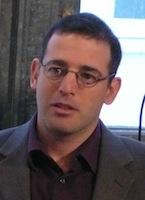
David Novack | University of Pennsylvania
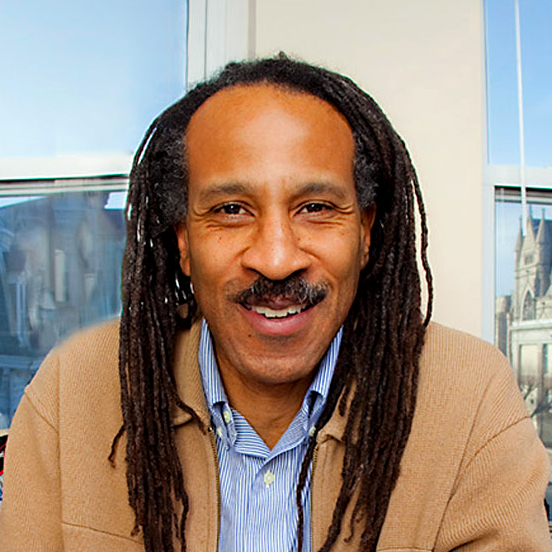
Louis Massiah | Scribe Video Center
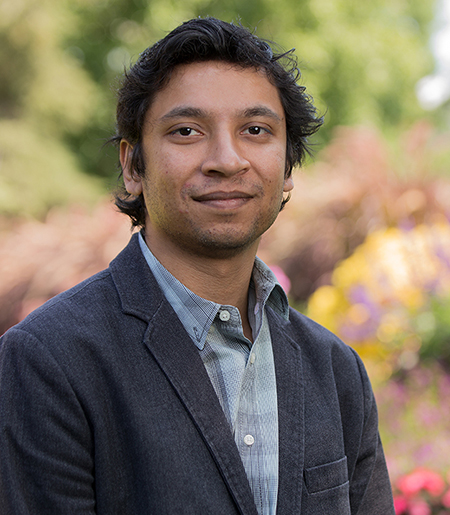
Rahul Mukherjee | University of Pennsylvania
_______________________________________________________
The symposium, free and open to the public, has been made possible thanks to the Dick Wolf Cinema and Media Studies Fund. It has been organized by Timothy Corrigan, Professor of English and Cinema & Media Studies at Penn, with the assistance of Nicola M. Gentili, Associate Director of Penn Cinema & Media Studies.


